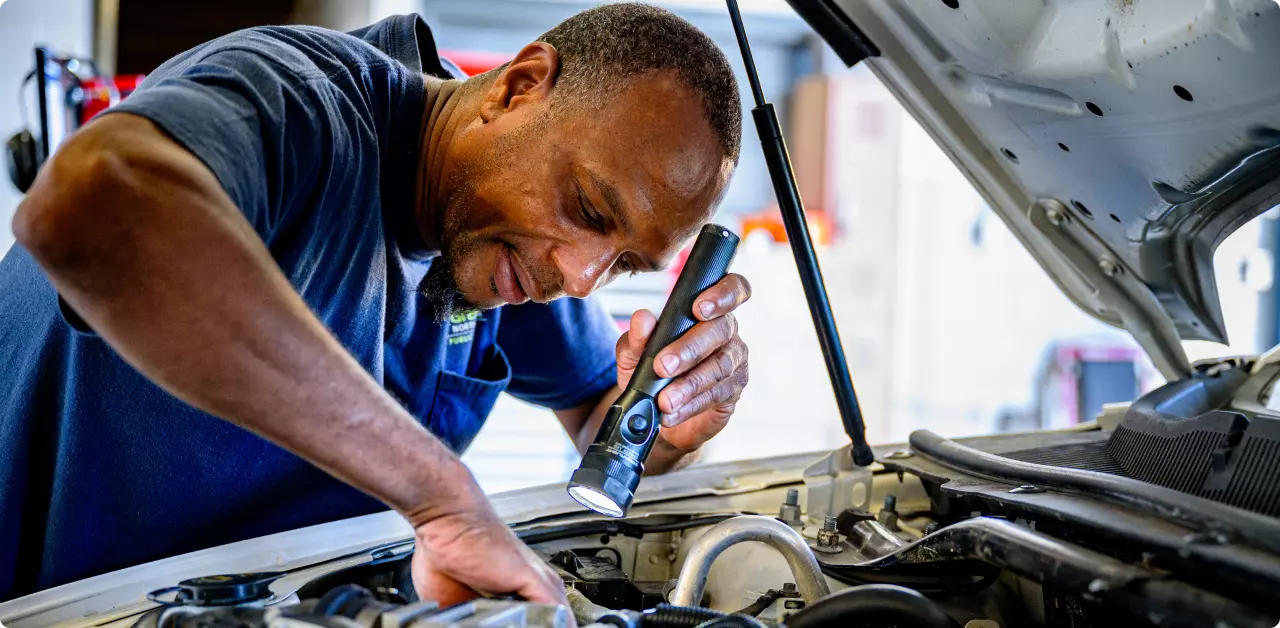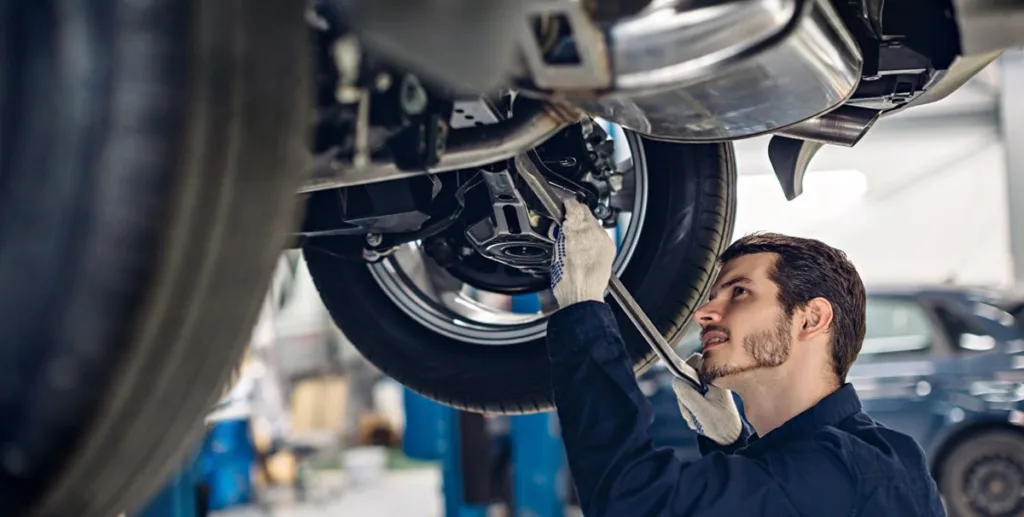All Categories
Featured
When your cars and truck gets too hot, it can seem like a significant emergency situation, but remaining tranquil and adhering to the right steps can avoid severe engine damage and aid obtain you back when driving securely. In this post, we'll discover what to do if your car overheats and use preventative pointers to decrease the threat of overheating in the future.
What to Do If Your Auto Gets too hot. If your auto starts to overheat is to draw over to a safe spot as soon as feasible, pull Over to a Safe Location The initial and most important step. Switch on your danger lights and direct your automobile to the shoulder or right into a parking great deal. Keeping your auto running while it's overheated can cause extreme damage to the engine, so it's essential to close the engine off immediately.
Let the Engine Cool Once you've securely stopped, permit the engine to cool down. You should never try to open up the radiator cap while the engine is still warm, as the release of steam or warm coolant can create burns. Wait a minimum of 15-20 minutes to allow the engine temperature level to go down to a much safer level prior to proceeding.
![]()
Check the Coolant Degree After the engine has cooled down, inspect the coolant levels by checking the storage tank or radiator. If it's low, leading it off with a combination of coolant and water (as defined by your car's manufacturer) Constantly make use of care when opening the coolant tank, as stress might have developed up.
Try To Find Noticeable Leakages While you wait on the engine to cool down, aesthetically inspect the radiator, hoses, and coolant tank for any visible leakages or fractures. A leaking radiator or pipe is a common cause of getting too hot. It's far better to call a tow solution than danger driving further and causing added damage. if you locate a significant leak.
Reboot the Engine After allowing the engine to cool and ensuring the coolant is complemented, begin the engine and keep an eye on the temperature level scale. If the temperature level remains to rise quickly, it's ideal to shut the engine off and require roadside help or a tow to the local technician.
![]()
Exactly How to Prevent Getting Too Hot in the Future. Consistently Examine Coolant Degrees One of the easiest ways to stop getting too hot is by maintaining the appropriate degree of coolant. Gradually, coolant can vaporize, so regularly examine the coolant degrees in the tank. Low coolant degrees can trigger the engine to get too hot quickly, so leading it off as required.
Inspect the Radiator The radiator plays a vital function in keeping the engine cool. Occasionally examine the radiator for any obstructions, dirt, or particles that might obstruct airflow. If you see any kind of indicators of damages, such as rust or leaks, have it fixed or replaced as quickly as feasible.
The thermostat manages the flow of coolant, while the water pump distributes it via the engine. If either component is defective, it can protect against correct air conditioning.
Flush the Air conditioning System With time, coolant can degrade and come to be inefficient, causing a buildup of particles in the system. Flushing the air conditioning system every 30,000 miles, or as recommended in your vehicle's guidebook, assists to get rid of any kind of sludge or buildup and ensures the cooling system is functioning effectively.
Display the Problem of the Hose pipes The tubes in your vehicle's cooling system can break or crack over time. Examine the hoses for any signs of wear, such as bulging, splits, or leaks, and change them if required. Preventing coolant leaks can go a lengthy means in staying clear of overheating.
![]()
Drive Sensibly Aggressive driving, such as accelerating swiftly or driving at high speeds, puts added stress on your engine and its cooling system. Try to drive at modest rates, particularly on warm days or when driving on steep inclines, to reduce the possibilities of getting too hot.
Stay Clear Of Overloading Your Lorry Bring extreme weight in your vehicle puts stress and anxiety on the engine and air conditioning system. Always be conscious of your lorry's weight limitation, specifically if you're carrying heavy lots, lugging a trailer, or driving fars away in heat.
Conclusion. A getting too hot vehicle can be a frightening experience, yet understanding just how to respond and prevent it can conserve you time, cash, and prospective engine damage. Always check your coolant levels, evaluate crucial components like the radiator, thermostat, and hoses, and comply with a normal maintenance timetable. By remaining on top of your vehicle's air conditioning system, you can lower the threat of overheating and take pleasure in a smoother, much safer driving experience.
What to Do If Your Auto Gets too hot. If your auto starts to overheat is to draw over to a safe spot as soon as feasible, pull Over to a Safe Location The initial and most important step. Switch on your danger lights and direct your automobile to the shoulder or right into a parking great deal. Keeping your auto running while it's overheated can cause extreme damage to the engine, so it's essential to close the engine off immediately.
Let the Engine Cool Once you've securely stopped, permit the engine to cool down. You should never try to open up the radiator cap while the engine is still warm, as the release of steam or warm coolant can create burns. Wait a minimum of 15-20 minutes to allow the engine temperature level to go down to a much safer level prior to proceeding.

Check the Coolant Degree After the engine has cooled down, inspect the coolant levels by checking the storage tank or radiator. If it's low, leading it off with a combination of coolant and water (as defined by your car's manufacturer) Constantly make use of care when opening the coolant tank, as stress might have developed up.
Try To Find Noticeable Leakages While you wait on the engine to cool down, aesthetically inspect the radiator, hoses, and coolant tank for any visible leakages or fractures. A leaking radiator or pipe is a common cause of getting too hot. It's far better to call a tow solution than danger driving further and causing added damage. if you locate a significant leak.
Reboot the Engine After allowing the engine to cool and ensuring the coolant is complemented, begin the engine and keep an eye on the temperature level scale. If the temperature level remains to rise quickly, it's ideal to shut the engine off and require roadside help or a tow to the local technician.

Exactly How to Prevent Getting Too Hot in the Future. Consistently Examine Coolant Degrees One of the easiest ways to stop getting too hot is by maintaining the appropriate degree of coolant. Gradually, coolant can vaporize, so regularly examine the coolant degrees in the tank. Low coolant degrees can trigger the engine to get too hot quickly, so leading it off as required.
Inspect the Radiator The radiator plays a vital function in keeping the engine cool. Occasionally examine the radiator for any obstructions, dirt, or particles that might obstruct airflow. If you see any kind of indicators of damages, such as rust or leaks, have it fixed or replaced as quickly as feasible.
The thermostat manages the flow of coolant, while the water pump distributes it via the engine. If either component is defective, it can protect against correct air conditioning.
Flush the Air conditioning System With time, coolant can degrade and come to be inefficient, causing a buildup of particles in the system. Flushing the air conditioning system every 30,000 miles, or as recommended in your vehicle's guidebook, assists to get rid of any kind of sludge or buildup and ensures the cooling system is functioning effectively.
Display the Problem of the Hose pipes The tubes in your vehicle's cooling system can break or crack over time. Examine the hoses for any signs of wear, such as bulging, splits, or leaks, and change them if required. Preventing coolant leaks can go a lengthy means in staying clear of overheating.

Drive Sensibly Aggressive driving, such as accelerating swiftly or driving at high speeds, puts added stress on your engine and its cooling system. Try to drive at modest rates, particularly on warm days or when driving on steep inclines, to reduce the possibilities of getting too hot.
Stay Clear Of Overloading Your Lorry Bring extreme weight in your vehicle puts stress and anxiety on the engine and air conditioning system. Always be conscious of your lorry's weight limitation, specifically if you're carrying heavy lots, lugging a trailer, or driving fars away in heat.
Conclusion. A getting too hot vehicle can be a frightening experience, yet understanding just how to respond and prevent it can conserve you time, cash, and prospective engine damage. Always check your coolant levels, evaluate crucial components like the radiator, thermostat, and hoses, and comply with a normal maintenance timetable. By remaining on top of your vehicle's air conditioning system, you can lower the threat of overheating and take pleasure in a smoother, much safer driving experience.
Latest Posts
Find Top Car Repair Care offered by Montclare Auto Repair – Drive with Confidence
Published May 24, 25
1 min read
Uncover Montclare Auto Repair’s Premier Auto Repairs and Why Drivers Trust Them
Published May 21, 25
1 min read
Discover the Greatest Auto Repair Deals in Montclare, Chicago
Published May 20, 25
1 min read
More
Latest Posts
Find Top Car Repair Care offered by Montclare Auto Repair – Drive with Confidence
Published May 24, 25
1 min read
Uncover Montclare Auto Repair’s Premier Auto Repairs and Why Drivers Trust Them
Published May 21, 25
1 min read
Discover the Greatest Auto Repair Deals in Montclare, Chicago
Published May 20, 25
1 min read